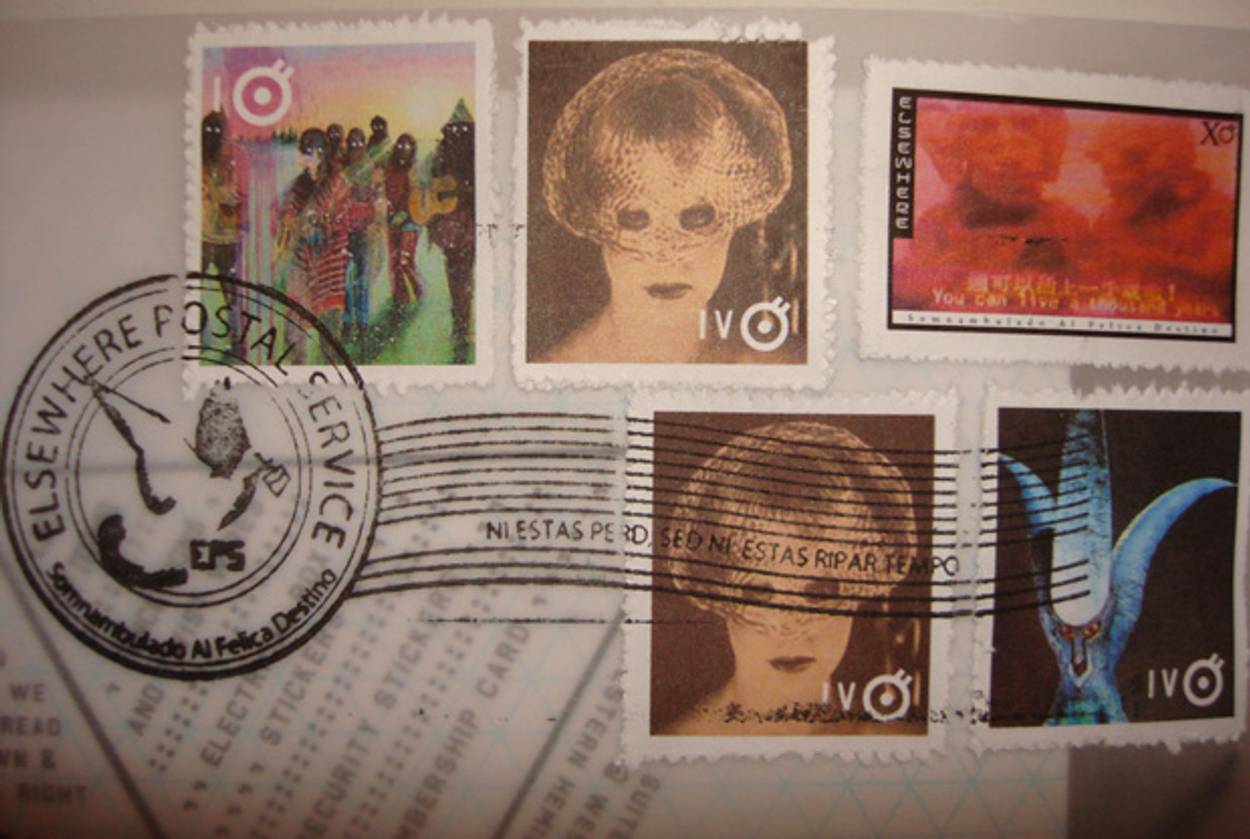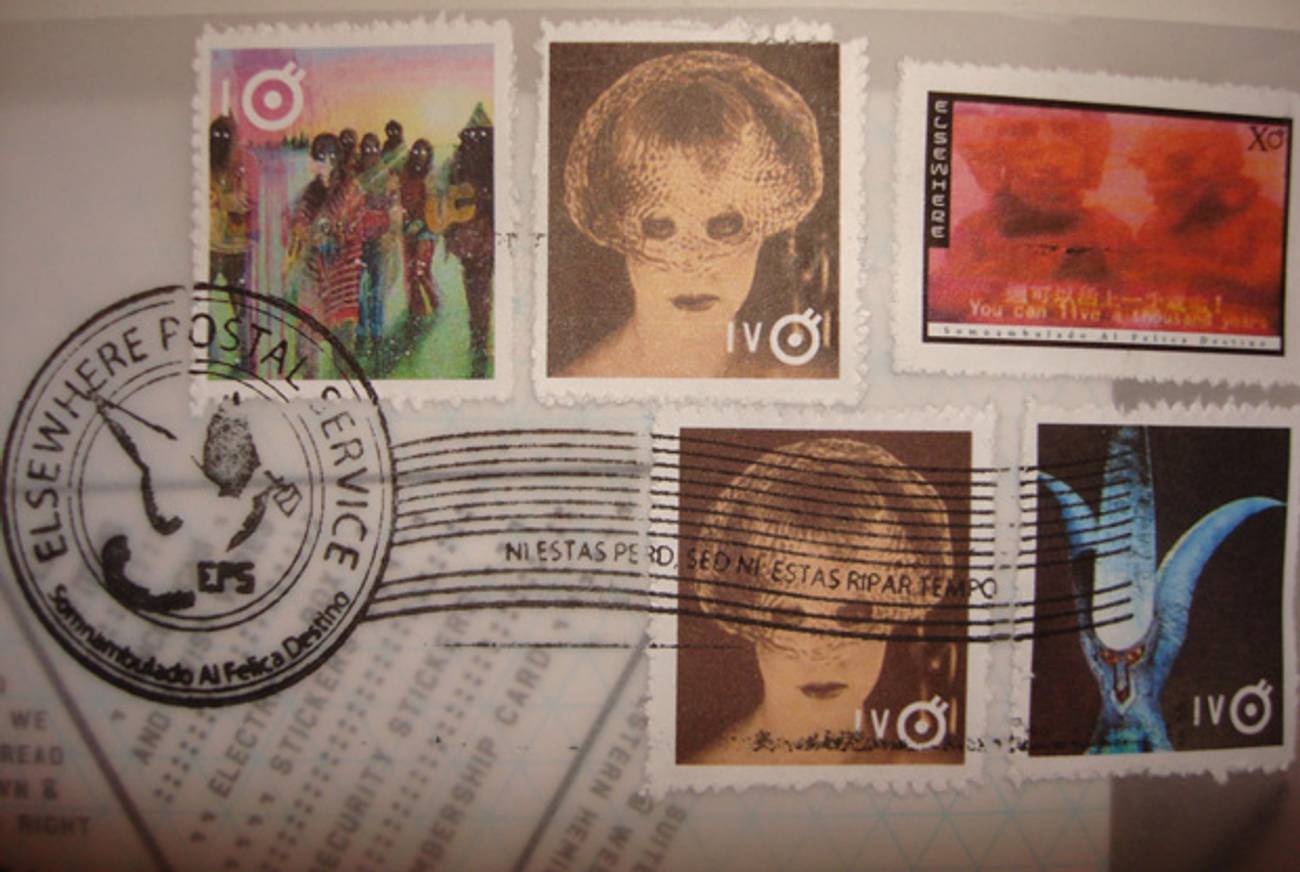Elsewhere
In the new Alibis, a revealing collection of essays, André Aciman finds in his exiled Egyptian life a quintessential diasporic Jewish identity




“Shame, which is the reluctance to be who we’re not even sure we are, could end up being the deepest thing about us, deeper even than who we are, as though beyond identity were buried reefs and sunken cities teeming with creatures we couldn’t begin to name because they came long before us.”
You might think for a moment that these words belong to Freud or Kafka, but neither could have addressed the subject with quite the same elegance and lyricism—poetry, really—as the Egyptian Jewish émigré writer André Aciman. The quote comes from an essay about the author’s summer vacation in Rome that is included in his latest collection, Alibis: Essays on Elsewhere. This is what most of his travels, detailed in this book, have been like. Aciman is neither a thrill-seeking tourist nor a sophisticated Baudelarian flâneur, but rather a man in search of intense and unexpected moments of introspection, which are triggered by the various settings and cultures he encounters.
While it is the quality of his writing and his intellectual breadth that make Aciman a major contemporary writer, what places him in a category of his own is the fact that each of his books has been a significant departure from the previous one. Out of Egypt (1995) is a memoir about his childhood as a Jew in Alexandria; False Papers: Essays in Exile and Memory (2001) is a collection of nonfiction writing, a mixture of immigrant nostalgia, literary criticism, and lyrical broodings; Call Me By Your Name (2007), the author’s first published foray into fiction, is a steamy coming-of-age homoerotic novel, set in Italy; Eight White Nights (2010) is a novel also centered on a love affair, this time a heterosexual romance that takes place in New York. In addition, Aciman also edited the Proust Project (2004), a collection of essays on French author Marcel Proust, whose influence pervades all of Aciman’s published work.
For Aciman’s fans, no small degree of excitement has been generated by the anticipation of what’s coming next from an author who seems to excel at anything he tackles. Alibis is the first time he has chosen to revisit a form, and it is, inevitably, reminiscent of False Papers. The focus is again the author himself—dreaming and musing, analyzing and over-thinking. And yet there are some significant differences. He writes:
I begin my inward journey by writing about place. … Yet my hidden nerve lies quite elsewhere. To work my way closer to it, I’d have to write about loss and feeling unhinged in provisional places where everyone else seems to have a home, and where everyone knows what he wants, who he is and who he’s likely to become. … Yet peel this second sheath and you’ll find another. I may write about a place and displacement, but what I’m really writing about is dispersion, evasion, ambivalence: not so much a subject as a move in everything I write.
As it becomes clear early on, this book is not so much about Aciman as an exile, a dreamer, or an inquiring mind as it is about Aciman the writer. The author shows his cards, not only describing his tactical and at times technical methods but also allowing for occasional confessions. For example, he describes how one of the most memorable scenes in his memoir really happened to his brother whom, in the final drafts, he “offed” from the book altogether. The real goal of this self-analysis, however, is the invisible “not so much a subject as a move,” a hint at something extremely private and mysterious, an arrow drawn beneath the carpet.
Aciman arrives at his insights and revelations, never quite stating them but circling around in his meditations as he circles around the cities he describes. The essays in this collection speak of Rome and Paris, Barcelona and Tuscany, his native Alexandria and New York, his home. He admits: “I make a terrible travel journalist. … as soon as I visit a place I am totally unable to write about it. … I need to feel that such-and-such place has lost its presence, that it has become unavailable, or that I might never see it again.” That is to say, he needs a distance that creates room for the imagination, the dreaming of a life that could have been, the shape the mind would have come to, if only such an opportunity had arisen.
All of this brings to mind an episode detailed in Joris-Karl Huysmans’s À Rebours, in which the protagonist—the prototypical decadent and dreamer—makes an uncharacteristic effort to leave his premises outside of Paris and take a trip to London. On the way, while still in France, he stops at a pub where he encounters and eavesdrops on a crowd of Englishmen. Listening to them, he imagines Dickensian characters coming to life around him, indeed a whole city arising in his mind. His imagination becomes so stimulated by this that he immediately decides that having experienced London in such a way is superior to any actual experience of the place he could ever have. So then, why drag himself across the border, find accommodations, and arrange logistics? At that, the protagonist returns home.
While Aciman may have something in common with Huysmans’ protagonist, he also actually does travel, is well-versed in Europe, and enjoys recounting what he calls its “mysterious, magnetic erogenous zones.” Even though the focus of his writing is on the kaleidoscope of reactions arising in himself as he experiences each new city, the actual discussions are quite wonderful in their own right, particularly as he instructs tourists in Rome: “scorn maps. They never show all of Renaissance Rome anyway; they merely stand between you and the city. Stray instead. Enforced errancy and mild disconcertment are the best guide. Rome must swim before your eyes.”
Indeed, of all the destinations evoked in the book, it is Italy that Aciman returns to most often. His novel Call Me By Your Name, set in Italy, captured a certain quality of the pervasive, infectious Mediterranean light that shined as if from beneath his writing, coloring everything he encountered and described in more intense vibrant colors. In Alibis this is the case as well, whether describing Rome, Venice, or even the small town of Bordighera. Here, however, he also explains the uneasy genesis of his relationship with Rome during the early years of immigration from Egypt, when he lived in poverty and seclusion, re-charting the world through his own adolescent dreams, mostly borrowed from the books he read. The luminous Italy Aciman’s readers have come to know is laced with memories of desire to escape the actual Italy the author experienced.
Unveiling the hidden nerves that undergird his writing, Aciman approaches another major subject he has only mentioned in passing previously: his Jewishness. For the first time he is explicit and frank on the subject: “I am a provisional, uncertain Jew. I am a Jew who loves Judaism provided it’s on the opposite shore, provided others practice it and leave me to pursue my romance of assimilation, which I woo with the assiduity of a suitor who is determined to remain a bachelor.”
In this, again, while basically sharing the weltanschauung of Kafka and Freud, he takes things a step further, adorning his ambivalence with longing that results in wonderfully poetic prose, precisely as he refers to himself as “a provincial person: someone who longs for the great and tiny tokens of cosmopolitanism for fear of being sucked back into the dark alleys of dark small towns in the dark old country that every Jew carries inside of him.” Could he have made himself more clear as to the adjective of choice, associated with the old world—the shame that he tries to escape by rushing toward the luscious cosmopolitanism of “elsewhere”?
Alexandria, which Aciman described with such nostalgic overtones in his memoir and a number of essays, was, for him, also a dark provincial town that he left not only literally but also by way of re-writing the reality of it, by transposing new musings on a world no longer accessible to him. In a similar vein, his Jewishness becomes yet another metaphor for displacement. One may wonder if this manner of addressing Jewishness is really about Jewishness. Or is it the other way around: Is his identity—his way of writing and thinking influenced by hereditary Marranism—a certain dialectic displacement that also becomes the source of his most poetic work?
Aciman points out in the book’s afterword that ibhri, a Hebrew, means “he who came from across (the river),” and so as a Jew he understands himself mythically “not as a person from a place, but as a person from a place across from that place. You are—and always are—from somewhere else.” In that, he really does point to something not only personal but quintessential to diasporic Jewish identity.
Then again, as Aciman writes, quoting Monet, “The motif is of secondary importance to me. … What I want to reproduce is what lies between the subject and me.” Perhaps, to an extent, this may be true of Aciman himself, and not only in relation to his Jewishness, but also in relation to the way he engages with Proust. Insightful and entertaining discussions of Proust’s writing have appeared in Aciman’s books for decades, and the root of this relationship reaches as deep as sentence structure. Aciman takes full advantage of what has become known as a “Proustian sentence”—a recognizably long, multi-clause meditation that the writer draws out the way a fakir summons a snake. Such sentences have less to do with syntactic antics or virtuosity than with a tactical decision on the writer’s part to hold on to a thought in a tight focus, letting this thought rise, coil after coil, in hypnotic beauty.
Alibis, like much of Aciman’s previous work, does include actual literary analysis of Proust, yet as he continues to unveil layers of himself as a writer, the author produces a series of astute observations about Proust that, again, reflect back on Aciman: “Proust has made being clumsy or getting off guard—call it Proustian slip—a veritable art form, a privileged moment indeed, because it is only inadvertently, by slipping, that Marcel encounters the present and, as he himself knows, life itself, with its pleasures, its dangers and sorrows.” Similarly in Aciman’s writing, behind a facade of discussions, reminiscence, and contemplation there appear sudden slippages, admissions into the world of “ancient riffs and sunken cities” that are fraught with truths that cannot be experienced other than through hints and insinuations.
In that way, Alibis is a much more personal and revealing book than Aciman’s memoir or his first essay collection. Now that the author has dissected his writing methodology and thought process so meticulously, the next book and new direction he’ll go toward seems more of a mystery still. What can he say now that won’t be transparent? That’s part of the excitement of reading Aciman, whose work is never a mere jest or entertaining distraction but genuine self-inquiry.
Jake Marmer is Tablet’s poetry critic. He is the author of The Neighbor Out of Sound (2018) and Jazz Talmud (2012). His jazz-klezmer-poetry record Hermeneutic Stomp was released by the Blue Thread Music in 2013.
Jake Marmer is Tablet’s poetry critic. He is the author of Cosmic Diaspora (2020), The Neighbor Out of Sound (2018) and Jazz Talmud (2012). He has also released two jazz-klezmer-poetry records: Purple Tentacles of Thought and Desire (2020, with Cosmic Diaspora Trio), and Hermeneutic Stomp (2013).